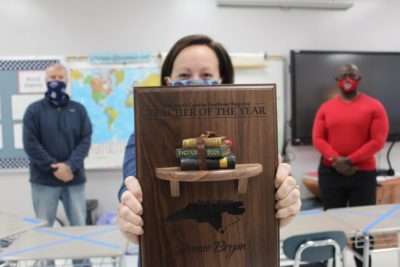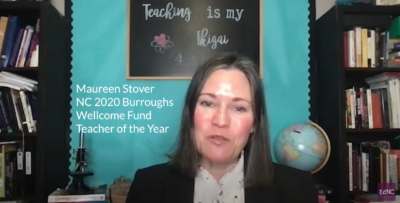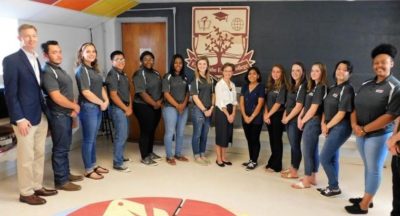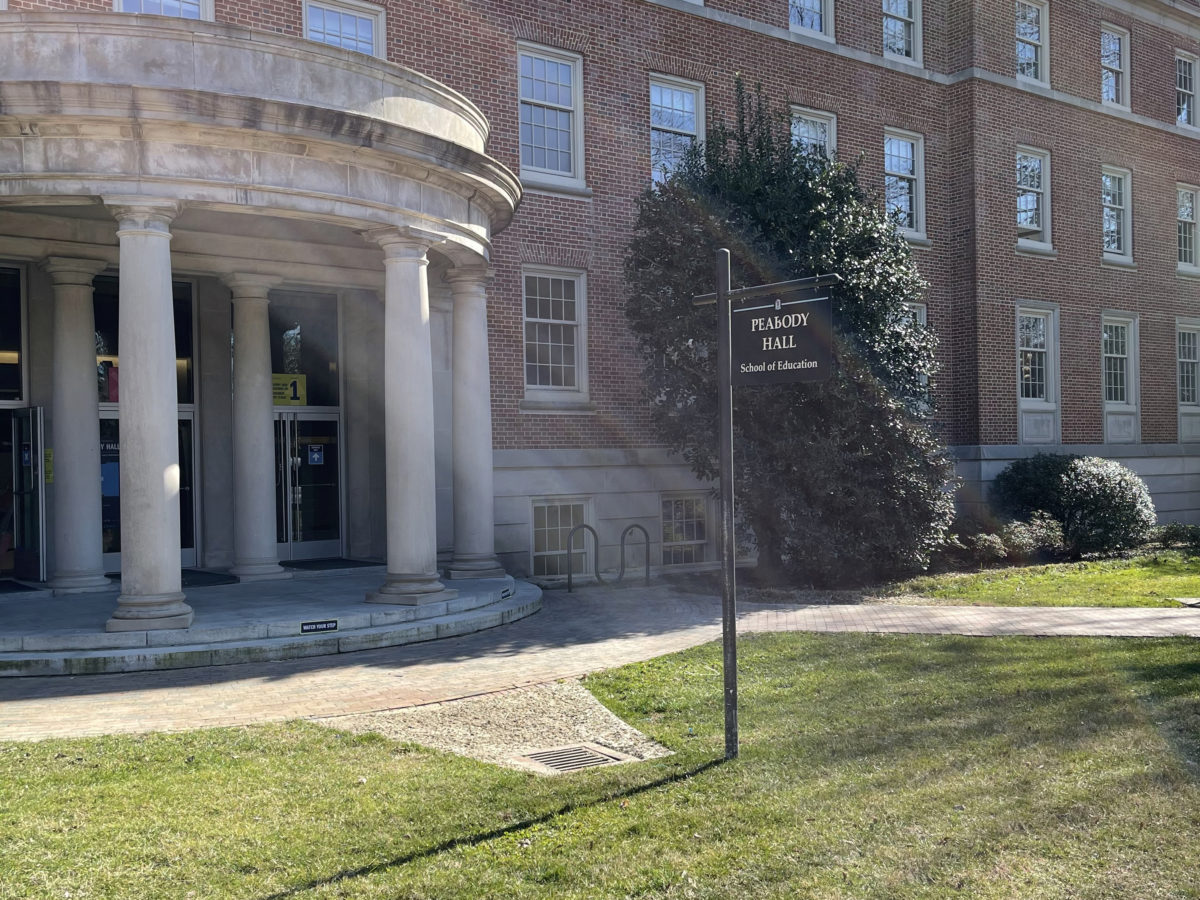

UNC Media Hub is a collection of students in the Hussman School of Journalism and Media who create integrated multimedia packages covering stories from around North Carolina. The following is one of those stories.
Caroline Bowersox was a shy kindergartner. Adjusting to the hustle of a big public school can be an arduous process for any kid, let alone a quiet, only child.
It would have been easy to burrow into herself, but Bowersox’s teacher, Ms. Nelson, met her where she was. Ms. Nelson was kind, she never yelled, and she took things slowly. The Sherrills Ford Elementary teacher brought out a new confidence in Bowersox.
“I looked up to the way she acted around people,” Bowersox said.
Ms. Nelson inspired Bowersox, now a sophomore at the University of North Carolina at Chapel Hill, to pursue a career in teaching. Bowersox is dedicated to having a kindergarten or first-grade classroom of her own one day.
But there’s a problem. She needs to get her teaching license, a process that is no longer part of her major at UNC-Chapel Hill’s School of Education. It’s another added stress for students looking to enter teaching, a career path that’s notorious for long hours and low pay.
“The plan right now is to stay a fifth year and do a Master of Arts in Teaching, but it’s stressful because I’ll have to pay for more of this,” Bowersox said. “If I wasn’t as privileged as I am then I might have chosen a different school (for undergrad).”
Several North Carolina universities offer undergraduate education programs that lead directly to licensure, including Appalachian State University, N.C. State University, and East Carolina University. Students at these schools can major in elementary and middle school education and, if all criteria are met, graduate with their license.
UNC-Chapel Hill used to offer similar bachelor’s degrees, but the last of the students in that teacher preparation program graduated in 2016.
The School of Education replaced that program with the human development and family studies (HDFS) major, an interdisciplinary program that covers several career paths beyond teaching but does not grant graduates a teaching license. The school also relaunched its Master of Arts in Teaching (MAT) degree, a 12-to-14-month program that graduates students with a North Carolina teaching license.
Diana Lys, an assistant dean in the School of Education, said the old majors were prescriptive, leaving little room for flexibility. The new program looked to expand opportunities for students interested in all education-related professions, though it limited options for students certain they want to go straight into teaching elementary or middle school.
“HDFS, this new major we have in the School of Education, not leading to licensure is very much by design based on some of the history of teacher preparation at Carolina,” Lys said.
UNC-Chapel Hill does offer two other undergraduate programs that lead to licensure. The K-12 Music Education degree and the UNC Baccalaureate Education in Science and Teaching allow music majors and math or science majors, respectively, to graduate ready for the classroom.
“There are still two programs for undergrads to become a teacher,” Lys said. “But not a fourth-grade teacher.”
This gap leaves students like Peyton Fedora, who completed the HDFS program in 2020, with the responsibility to get their own teaching license after graduation.
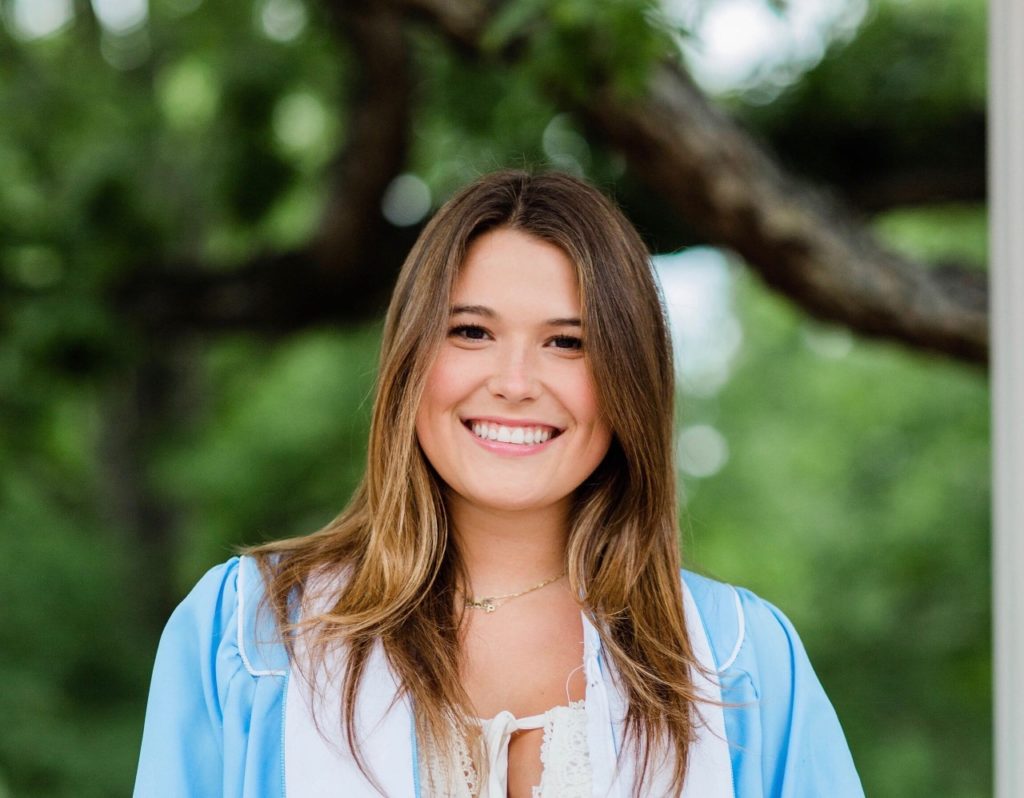

Fedora is teaching first-grade in Waco, Texas, while also completing an educator preparation program that allows her to be in the classroom while working toward her license. The year-long program consists of several courses, observations, and tests, adding what Fedora estimates to be an additional four to five hours of work per week.
“It feels like I’m doing a graduate program, but I’m not getting a master’s,” Fedora said. She pays about $400 a month in order to participate.
“There’s definitely times where I’m extremely frustrated that I have to sit here and do all of this when I should have just been done when I left college,” she said. “I’m a teacher. I should be grading the papers, not writing them.”
Teachers in North Carolina can also enter the classroom while working toward their license through similar programs. UNC-Chapel Hill and N.C. State University offer a joint online option called Pathway to Practice NC that takes about one year to complete but can be extended to three years if necessary. The average cost of the program is $4,800, according to the Pathway to Practice website.
Other HDFS students looking to get their license have chosen to complete a master’s degree. UNC-Chapel Hill’s MAT program is an attractive option for many students because of its length. Undergraduate students can choose to pre-affiliate with the MAT program, which allows them to take up to four classes during their bachelor’s degree that count toward their master’s.
The MAT program has seen growth since its relaunch, Lys said. There are 16 pre-MAT affiliates from across UNC-Chapel Hill applying to the program this year.
In-state tuition for the MAT program is $7,000 per semester, and there are some scholarship and external funding options.
The UNC-Chapel Hill education preparation model won’t work for everyone, Lys said. Some future teachers may want to graduate from undergrad with a teaching license, while others will want to pursue a master’s or educator preparation program right out of school.
“There is a teacher preparation program that will fit the needs of anyone who wants to become a teacher, and to me that’s more important than whether or not that’s at Carolina,” Lys said. “It’s about whether or not it’s a good fit for this future teacher.”
For Caroline Bowersox, the desire to become a teacher outweighs the additional cost and time of a graduate degree. Though she’s worried about the what another year of school will mean financially, she said she knows it’ll be worth the license it brings.
And in the back of her head is Ms. Nelson, repeating to Bowersox what she told her in kindergarten.
“I expect great things of you.”


